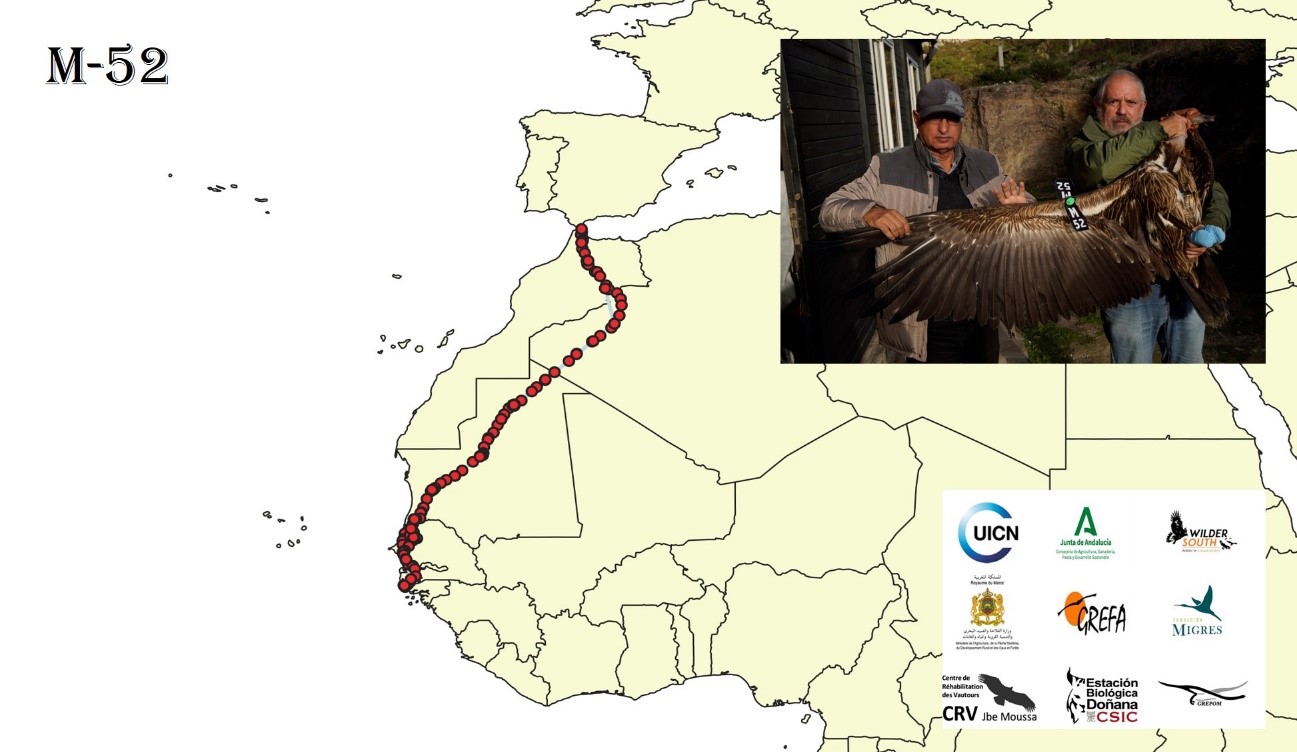M52, uno de los buitres de Ruppell marcados y liberados en noviembre en el Centro de Recuperación de Buitres de Jbel Moussa, se encuentra hoy en Guinea-Bisáu tras abandonar el centro de recuperación e iniciar su retorno hacia tierras subsaharianas,. Hasta ahora, este ejemplar ha recorrido más de 3.500 kilómetros y ha atravesado cinco países (Marruecos, Argelia, Mauritania, Senegal y Gambia).
Los resultados de este proyecto, realizado conjuntamente por la Junta de Andalucía, el Departamento de Aguas y Bosques de Marruecos, GREPOM-Birdlife, el Centro de Cooperación del Mediterráneo de la UICN, la Fundación Migres, la EBD, y las ONGs GREFA y Wilder South, serán esenciales para la conservación de esta especie de buitre africano.


 Open Call for Research Projects in ICTS-Doñana!
Open Call for Research Projects in ICTS-Doñana!



